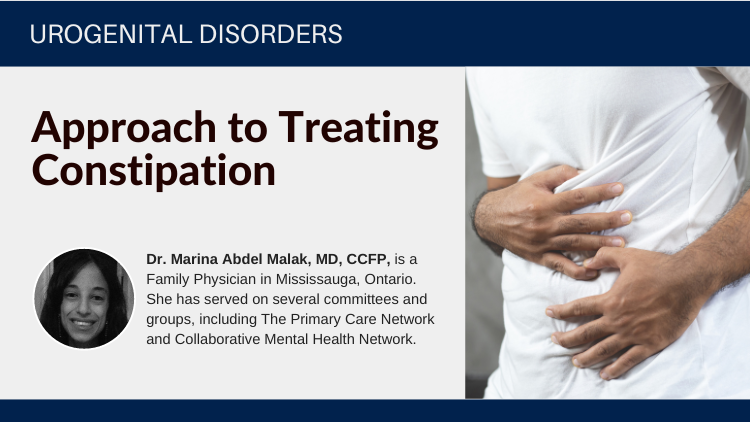Marisa Battistella, BScPhm, Pharm D, Education Coordinator & Hemodialysis Pharmacist, Pharmacy Department, University Health Network, Toronto, ON.
Shabbir M.H. Alibhai, MD, MSc, FRCP(C), Staff Physician, University Health Network, Toronto, ON.
Constipation is a common symptom in patients of all ages, but its occurrence is highest among persons 65 years of age or older.1,2 Constipation has been shown to diminish both quality of life and feeling of well-being.3-5 Although constipation can have many causes, it is most often functional or idiopathic.5,6 Furthermore, constipation can lead to serious complications such as malnutrition, fecal impaction, fecal incontinence, colonic dilation and even perforation of the colon.7
Definition
Constipation has different meanings to patients and physicians. A patient's perception of constipation may include not only the objective observation of infrequent bowel movements but also subjective complaints of straining with defecation, incomplete evacuation, abdominal bloating or pain, hard or small stools or a need for digital manipulation to enable defecation. Because the definition of constipation can be subjective, an international committee has recommended an operational definition of chronic functional constipation in adults.

